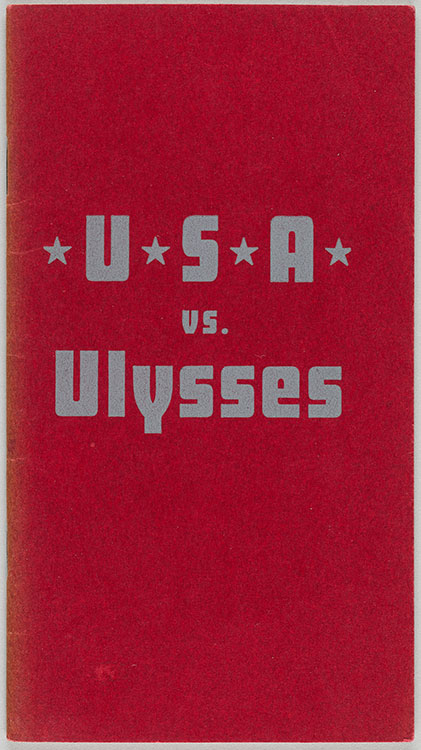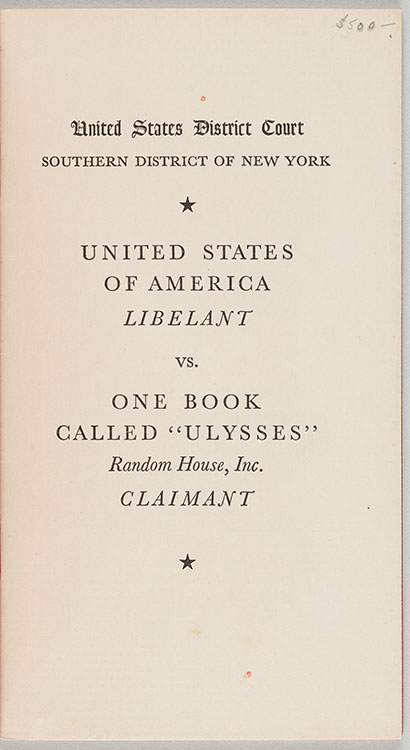When Joyce signed a contract with publisher Bennett Cerf’s Random House in 1932, Ulysses was still illegal in the United Sates. In partnership with ACLU lawyer Morris Ernst, Cerf set out to challenge the ban by importing a copy of Ulysses in plain sight, coaxing the government to put the book on trial. The package entered New York harbor unnoticed and made its way to Cerf’s office, prompting Ernst to return it to US Customs agents and, putting on an act, demand that the “suspicious” package be opened and subsequently seized. Within a few days, Cerf sent a circular letter to “editors, critics, authors, clergymen, members of the bar, sociologists, psychologists, teachers and libraries” to solicit opinions about the novel. Letters received in response became part of a strategic body of documentation, attesting to the book’s artistic value. In court Ernst argued for the novel’s literary merits. Judge John Munro Woolsey’s 1933 decision agreed that Ulysses was “a sincere and serious attempt to devise a new literary method for the observation and description of mankind”—its allegedly obscene passages more likely to nauseate than sexually arouse. Woolsey’s friends printed his opinion in this pamphlet as the “latest . . . book review by Judge Woolsey.”
United States District Court (New York: Southern District)
United States of America, Libelant vs. One Book Called “Ulysses”
Chicago: Lakeside Press, 1935
The Morgan Library & Museum, gift of Sean and Mary Kelly, 2018; PML 197837


